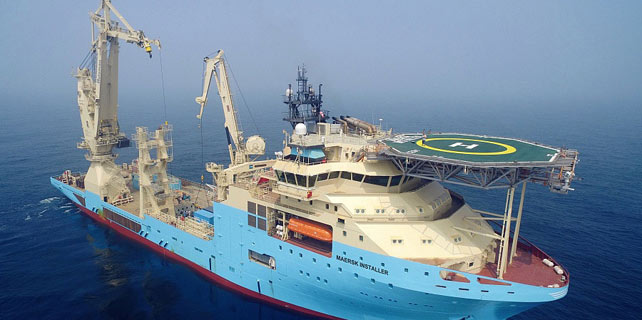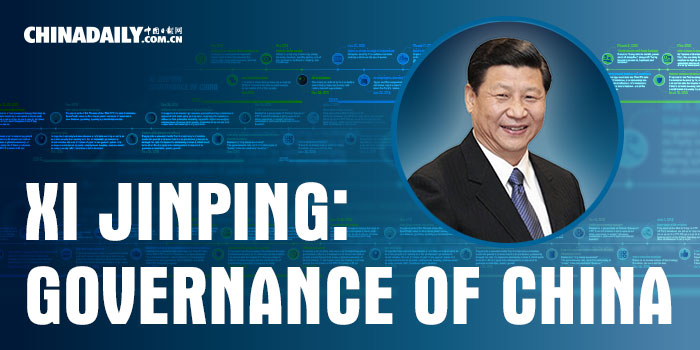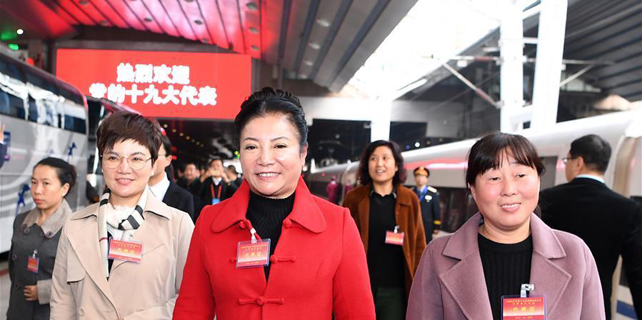China's inflation remains stable, economy solid
BEIJING - China's inflation remained stable in September as consumer prices were stable and factory gate prices saw comfortably strong increases.
The consumer price index (CPI) retreated mildly, weighed down by dropping food prices, while growth in the producer price index (PPI) hit a six-month high on demand for commodities.
The CPI grew 1.6 percent year on year last month, slowing from August's 1.8 percent, but still faster than July's 1.4 percent, the National Bureau of Statistics (NBS) said Monday.
It was the eighth straight month for the main gauge to stay beneath the 2-percent mark. On a monthly basis, the index was up 0.5 percent, slightly higher than 0.4 percent seen in the previous month.
NBS statistician Sheng Guoqing attributed the milder inflation to food prices, which account for a significant part of the calculation. "Food prices declined 1.4 percent from a year ago, contributing 0.28 percentage points to the slowdown."
But the increase in non-food prices picked up. Led by services including heath care and home rents, the price growth quickened marginally to 2.4 percent year on year.
In contrast, PPI, which measures costs for goods at the factory gate, was up by a 6.9 percent year on year in September, accelerating from 6.3 percent in August and the fastest growth since April.
The producer inflation was mainly driven by price rises in commodities including ferrous and non-ferrous metals and coal. On a month-on-month basis, the index was up 1 percent.
Wen Bin, a research fellow with China Minsheng Bank, said the commodity price rises were mainly caused by improving domestic demand and limited supply due to capacity cuts and stricter environmental regulations.
PPI has been soaring since the end of 2016, evidence of recovering economic growth, albeit with rising concerns of over-heated factory activity and chain reactions in consumer prices.
Analysts predict producer inflation will gradually stabilize during the rest of the year and the consumer prices will remain subdued.
"The big picture of industrial overcapacity is unchanged, which means the PPI growth will become milder on a year-on-year basis," said Zhang Liqun with the Development Research Center of the State Council.
"The divergence between consumer and producer prices will narrow," Xu Hongcai, an economist with China Center for International Economic Exchanges, said. "The PPI growth will moderate due to base effects, and the CPI will remain stable."
Wen projected the consumer price index will continue rising but will stay controllable. "Given stable demand, price increases in raw materials will not translate into more expensive consumer products."
For the first nine months of the year, the CPI climbed 1.5 percent from one year earlier, safely lower than the official target of 3 percent for the whole year. The PPI climbed 6.5 percent year on year.
"Current stable price trend provides ample room for monetary regulation," said Lian Ping, an economist of Bank of Communications.
The People's Bank of China (PBOC) at the end of September announced a targeted reduction in the amount of cash lenders must hold as reserves to promote inclusive finance and encourage credit support for small businesses, impoverished groups and agriculture, among others. Analysts expect hundreds of billions of yuan to reach the real economy.
September's data also added to signs of a solid economy, which may defy market expectations of a loss of momentum. Major economic indicators including GDP, industrial output and investment are scheduled to be released by the NBS Thursday.
China posted a better-than-expected GDP increase of 6.9 percent in the first half of the year, well above the target of around 6.5 percent for the whole year.
At the annual meeting of the International Monetary Fund and the World Bank in Washington Sunday, PBOC governor Zhou Xiaochuan said the economy will likely expand 7 percent year on year during the remainder of 2017 thanks to booming household consumption.
He cited sound imports and exports due to better external environment and also said China needs to bring down its leverage ratio.






















